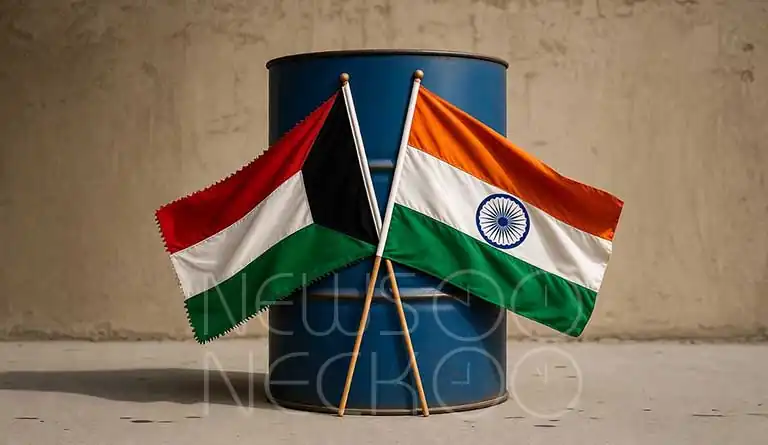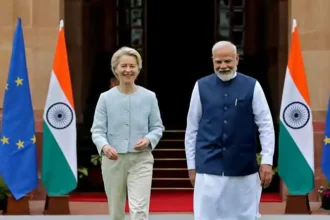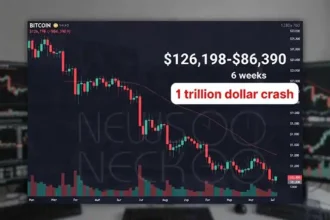Exclusive: India’s Russian Oil Pivot Fuels Middle Eastern Supply Surge
NEW DELHI, Nov 11 – In a significant shift for global oil flows, India’s refiners are turning back to their traditional Middle Eastern suppliers, securing increased crude supplies from Saudi Arabia, Iraq, and Kuwait for December, according to multiple industry sources. This move comes as Western sanctions on Russian companies disrupt the once-booming trade that made India a top buyer of discounted Russian crude.
Sources at four major Indian refining companies told Reuters that the renewed demand for Middle Eastern oil is a direct response to recent sanctions, allowing OPEC producers to reclaim market share in the world’s third-largest oil importer.
The recalibration of India’s energy imports highlights the far-reaching impact of Western efforts to tighten the screws on Moscow’s oil revenue. Last month, Britain, the European Union, and the United States designated Russian oil giants Rosneft and Lukoil, sending a wave of fear through the market. The immediate effect was a sharp drop in purchases by key buyers, including India and China, as insurers and shippers grew wary of facilitating the trade.
“With the new sanctions creating uncertainty around Russian deliveries, we cannot afford to take risks with our refinery operations,” said one of the refining sources, who spoke on condition of anonymity due to the sensitivity of the matter. “Middle Eastern suppliers are flush with oil, and they are providing access to that.”
Full Allocations Granted as Middle East Regains Footing
Indian refiners have received the full allocations of crude they requested from Saudi Arabia and Iraq for December, the sources said. This marks a notable change from recent months, when requests were sometimes trimmed as OPEC+ producers maintained supply cuts.
At least one refiner will receive a higher monthly supply from Iraq compared to November, the sources added. In a similar move, Saudi Aramco has raised supplies to another Indian refiner, according to one source.
Saudi ARAMCO declined to comment. Iraq’s state oil marketer, SOMO, did not immediately respond to a request for comment.
Further bolstering the trend, Kuwait Petroleum is also supplying more crude to Indian refiners for both November and December, two other sources confirmed.
The shift is not solely driven by sanctions. The commercial attractiveness of Middle Eastern crude has improved. Indian refiners are seeking more supply after Saudi Aramco and SOMO lowered their official selling prices (OSPs) for December-loading cargoes. The lower OSPs make the crude more competitive against other grades, including what remains of the Russian supply.
You Might Like it: America’s Surprising Shift: Why India Now Faces Harsher Treatment Than China Under Trump
From Russian Discounts to Sanction Fears
For over a year, India became a primary destination for Russian crude following the invasion of Ukraine, capitalizing on steep discounts as Western nations shunned Moscow’s oil. At its peak, Russian oil constituted nearly 40% of India’s total crude imports, supplanting a substantial portion of supplies from the Middle East.
That era appears to be winding down. The latest round of sanctions has introduced a new level of legal and financial risk that Indian companies, particularly those with international operations, are hesitant to shoulder.
“The payment and shipping complications have become too burdensome,” said a second source at an Indian refiner. “The discounts on Russian oil are no longer enough to justify the headaches and potential exposure.”
Since the sanctions were announced, Indian refiners have been actively snapping up crude from the Middle East, Iraq, and the United States in the spot market to fill the void left by Russian barrels.
A Delicate Balancing Act for India
This pivot back to the Middle East underscores India’s delicate balancing act. The country, which relies on imports for over 85% of its oil needs, must prioritize energy security and stable supplies for its growing economy. While discounted Russian oil provided significant fiscal relief, the reliability of Middle Eastern suppliers, with whom India has long-term contracts, is now taking precedence.
The trend also provides a welcome boost for OPEC giants. Saudi Arabia and Iraq had seen their market share in India erode significantly over the past year. The current situation allows them to reassert their influence in a critical market without needing to make dramatic price concessions.
Analysts suggest that this could be the beginning of a more sustained realignment. “The convenience and discount-driven model for Russian oil is facing its biggest test yet,” said Viktor Katona, lead crude analyst at Kpler. “If Indian refiners successfully build up their Middle Eastern and U.S. portfolios for December, it might indicate a longer-term structural change, not just a temporary pause.”
For now, tanker tracking data will be closely watched to see if the increased allocations translate into a sustained recovery in Middle Eastern shipments to India, signaling a new chapter in the complex geopolitics of global oil trade.
For More Vsit: NewsNeck













